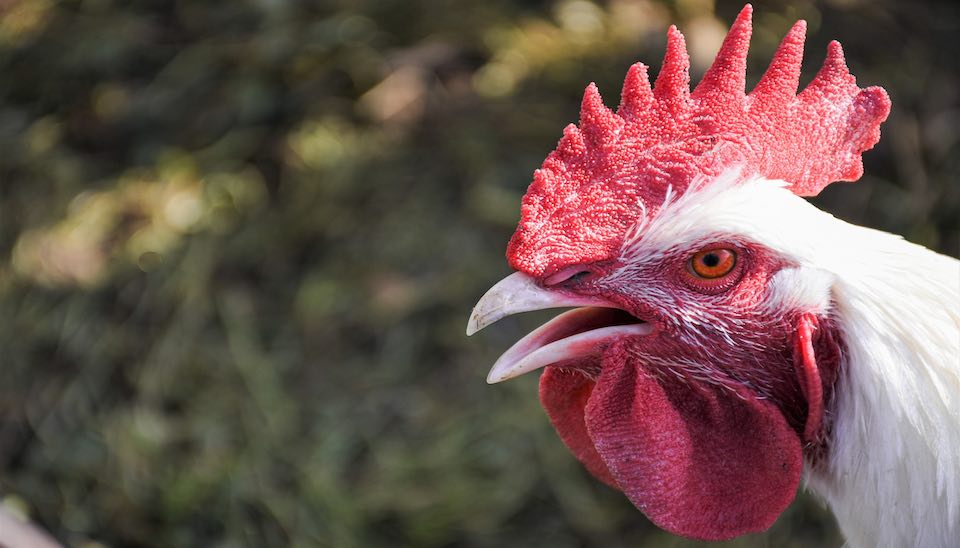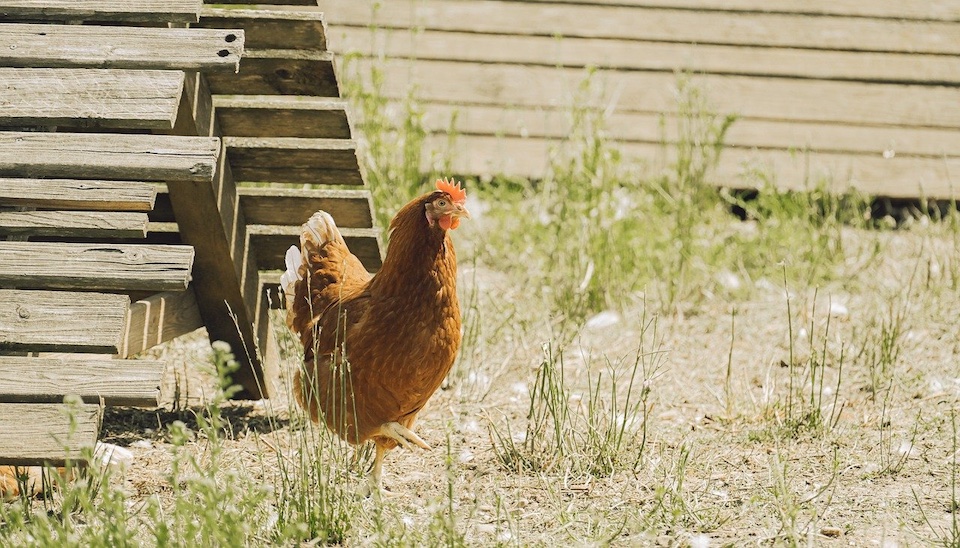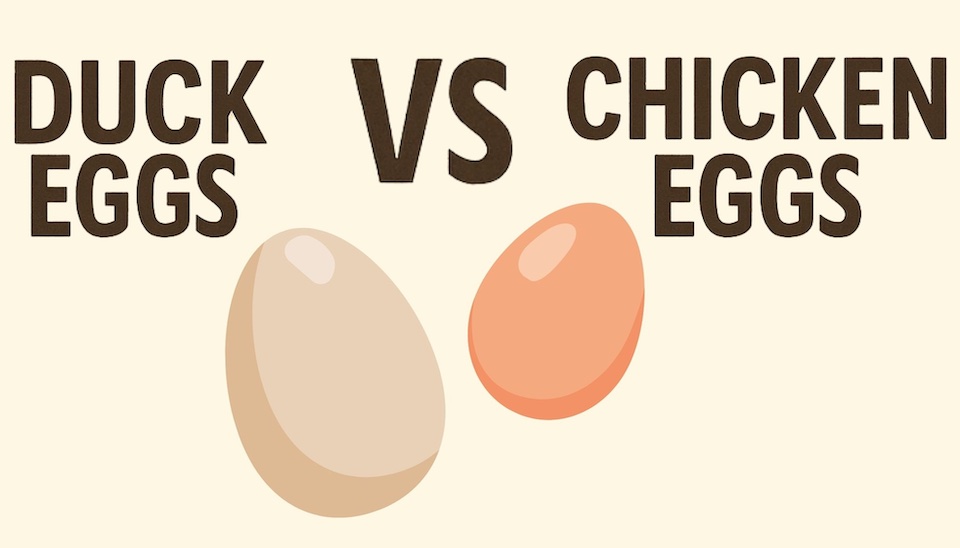How to Keep Chickens Cool in a Heatwave
How to Keep Chickens Cool in a Heatwave
Keeping chickens cool in Australia's hot summers is one thing but a heatwave is something else!
In an extreme heatwave scenario, your chickens will need special care.
What counts as a heatwave for chickens?
Anything above 29 degrees Celsius is hot for a chicken and can lead to heat stress. Chickens may start to show symptoms such as decreased laying, decreased appetite, and loose droppings.
That said, chickens in warmer parts of the country will adapt to the hot summers, and some chicken breeds are better suited to hot weather than others. If you live in an area where summer temperatures are regularly in the 30s, you should ensure your chickens have plenty of shade and cool water.
But a heatwave, where temperatures are in the high 30s or above and do not decrease overnight, can be fatal for chickens. High humidity will make a heatwave even deadlier.
If a heatwave is being forecast, be prepared to implement the strategies below to protect your flock.
How do chickens keep cool?
In order to protect chickens from a heatwave, we need to understand how they keep cool.
Unlike people, chickens don't sweat. Instead, chickens regulate their body temperature by panting and by losing heat through unfeathered body parts, e.g., comb, wattles, feet, legs, and under the wings.
It is normal for hot chickens to eat less, pant, and hold their wings away from their body. During heat stress, chicken droppings also tend to be looser (wetter).
To help chickens keep cool in a heatwave, you need to help them regulate their temperature effectively so that they don't overheat and die.
Symptoms of heat stress in chickens
Chickens suffering from heat stress may exhibit the following symptoms:
- Decreased laying
- Smaller eggs
- Thin-shelled eggs
- Diarrhoea
- Slower growth
- Poor nutrient absorption and malnutrition
- Suppressed immune response
- Increased risk of parasites and disease
- Delayed recovery from illness
- Decreased appetite
- Increased mortality
Recognising these symptoms early can help you take action to keep your chickens safe during extreme heat.
How to keep chickens cool during a heatwave – 6 ways
Here are 6 key strategies to keep your chickens safe in a heatwave:
1. Cool water
Drinking cool water will help chickens cool down. Plus, panting can cause dehydration, so a hot chicken needs to drink more than a cool one.
Chickens won't usually drink warm water, especially on warm days. During a heatwave, even the water in a shaded drinker becomes warm because air temperatures are so high. So providing cool water is essential.
Keep your chickens' water cool by:
- Chilling water in the fridge and replacing whenever it warms up
- Adding ice cubes to the Waterer and topping up regularly
- Freezing ice bricks, or even plastic bottles of water, and adding these to your Waterer
Ice bricks and recycled bottles usually fit easily into a Dine-A-Chook 4 L Drinker. Just remember, the ice brick will take up space, so you will need to fill the Waterer more often.
Remember to check your Waterer regularly as chickens will drink more during a heatwave.
Cool water must be provided wherever your chickens are passing the day. Chickens should never be forced to walk back to the coop for water during extreme heat.
Adding electrolytes and vitamin C to the drinking water during a heatwave can also help your hens. Probiotic supplements like 2Pak Probiotic can improve their health and help them cope with heat stress.
2. Dense shade
How shady is your chicken coop? In heatwave temperatures, chickens need dense shade with:
- Good ventilation
- Cool water
- Enough space that they are not touching one another
- Ideally, exposed soil or mulch
What is dense shade?
- Dense shade is thick shade where heat doesn't radiate through
- Dappled shade, e.g., under a gum tree, is not dense shade
- Shade where heat radiates through, e.g., under an uninsulated metal roof, is not dense shade
- Dense shade is usually provided by multi-layer plants, e.g., a rainforest as opposed to a more open eucalypt forest
- Buildings can also provide dense shade
For many chicken keepers, the best place for their chickens in a heatwave – the densest shade – is not in the coop or run. Dense shade might be:
- In a food forest or garden
- Under the house
- In a bush or rainforest area
- Along a creek, river, or dam
Think about where your chickens should spend a heatwave and how you will provide water.
For example, during heatwaves we put our chickens in the garden. There is a shaded spot with multi-layer plants that is always cool and damp – it even has moss growing! We set up a little pen there with chicken wire, about 1 m per bird, hose down the soil, and add a Waterer. Even without the pen, the chickens would probably stay there because it is so cool! The small amount of damage done to the garden is worth it to protect the chickens.
3. Moist soil
Lying and dust bathing in cool, moist dirt is one of the best ways to keep chickens cool.
Although wetting down the coop floor will help your chickens in a heatwave, moist soil or mulch is much more effective for helping chickens keep cool than any other surface.
Hose down the soil wherever your chickens are passing the heatwave. If the coolest spot has a concrete surface or grass, hose this down but also think about providing a kiddie pool of moist sand, soil, or even leaf litter for dust bathing/lying on.
Chickens will not swim or sit in puddles. But a very shallow container of water to wet their feet and legs can be helpful.
Another way to keep dirt both moist and cool is to put out a few blocks or containers of ice with holes in them. Chickens can lie near the ice to keep cool and, as it melts, the ice will continue to keep the soil moist.
4. Hydrating treats
Chickens naturally eat less when they are hot, and what they eat is also important because some foods make them hotter and others cooler. A lot of the normal rules of chicken feeding are reversed during a heatwave.
Normal chicken feeding good practice:
- Provide unlimited access to feed all day long.
- Feed dry pellets or mash from a Dine-A-Chook Feeder.
- Only feed chickens their complete feed.
- Provide some whole grains, e.g., scratch mix, as a treat.
How to feed chickens in a heatwave:
- Limit feed during the day. Only feed chickens in the morning and evening, when it is coolest.
- Rehydrate feed with water and feed in a dish—discard after an hour or so, as wet feed can grow illness-causing bacteria.
- Provide hydrating treats throughout the day (see below).
- Avoid carbohydrate-heavy foods that make chickens hotter through digestion. Avoid scratch mix, cracked corn, whole grains, bread, pasta, etc.
During the day, give your chickens cooling, hydrating treats. Here are some of the best hydrating treats for chickens during heatwaves:
- Watermelon (frozen or chilled)
- Cucumber (frozen or chilled)
- Iceberg lettuce
- Frozen berries
- Rehydrated Mealworms
- Other fruits and vegetables with a high water content, such as melons, greens, stone fruits, tomatoes, zucchini, apples (avoid the pips), and celery
Adding hydrating treats will help increase your chickens' water intake and provide essential nutrients.
Read our article about the best treats for chickens.
5. Dietary supplements
Certain dietary supplements can help your chickens cope with heat stress:
- Feed your chickens fennel seed: Add some fennel seed to your chicken feed during hot weather. Of all the unexpected dietary supplements, 10 to 20 grams of fennel seed per kilo of feed can help reduce the effects of heat stress in laying hens.
- Probiotics for chickens: Probiotic supplementation is another scientifically proven way to improve the performance and health of your chickens during hot weather. The use of probiotics such as 2Pak Probiotic will also help to reduce poultry stress in the hot months.
- Use a vitamin and mineral supplement: Studies have linked a range of vitamin and mineral supplements to improved resistance to heat stress. Zinc and vitamin A, when taken together, are particularly effective. Vitamin E also helps mitigate the effects of heat stress. And so does vitamin C. If you are going to use just one supplement, vitamin C (ascorbic acid) probably gives the most bang for buck. A vitamin and mineral supplement like Mega Mineral will cover Zinc, Vitamin A, and Vitamin E in one easy dose.
- Add yeast to the diet: Interestingly, yeast and yeast protein concentrate have both been found to improve responses to heat stress. Although the yeast protein concentrate is more effective, something like baker’s or brewer’s yeast is easier to source and use on a home scale.
6. Misting and ventilation
You should never wet your chickens or fully immerse them in water, even during a heatwave. This can actually interfere with their natural cooling processes which involve lifting feathers to allow airflow on the skin.
Chickens can be cooled by submerging their underpart (feet, legs, belly) in cool (not icy) water. However, most chickens find submersion stressful, which will make them hotter and more susceptible to heat stress. So immersion should only be used where chickens are showing severe heat stress and other cooling methods are not effective.
That said, misting the area where chickens are kept is a good idea as it allows evaporative cooling from the surfaces and moistens the soil (see above). This is especially important if your chickens are being kept in a coop during the heatwave. Adding a fan for breeze can also help.
Can chickens stay in the coop in a heatwave?
Sometimes the chicken coop or run is the best spot for chickens during a heatwave, but not very often.
Here is what needs to be considered if you are thinking about keeping your chickens in the coop during a heatwave:
- Space: How much room is there? Chickens need space around them to keep cool. If they are squashed together, they shouldn't be kept in the coop.
- Shade: Chickens need dense shade to keep cool. If the sides of the coop are open to direct sunlight or even reflected light, it won't be shady enough. If there is only one layer of vegetation, again the shade in the coop or run won't be dense enough.
- Insulation: Uninsulated metal and timber may provide shade, but heat will still radiate through. A coop with a roof or walls exposed to direct sunlight, even with some insulation, will be too hot in a heatwave. That said, a layer of hay bales on the roof or a hay bale wall can be effective short-term insulation for a chicken coop in a pinch.
- Ventilation: Ventilation in the chicken coop is important in hot weather. If the coop is close-sided or doesn't have ventilation at the roof to allow hot air to escape, it will not even be an option in a heatwave.
- Flooring: Moist soil or mulch are the best options for chickens in a heatwave. Concrete coop floors can be cooled by hosing, but still aren't as good as soil. Coop floors with litter of any kind, e.g., straw, wood shavings, etc., will contribute to the heat and should not be moistened because they will grow bacteria and mould.
Broody hens in a heatwave – a special case
Often, nesting boxes are the warmest part of the coop. Of course, nests are supposed to be cosy. But in extreme heat, a warm nesting box can pose a health risk to a broody hen.
Broody hens have a naturally elevated body temperature, so if you are not setting eggs, you should try to stop the broodiness as quickly as possible while keeping the hen cool. Lock the broody hen out of the coop or place her in containment in a cool spot. Here are some other strategies for dealing with a broody hen.
If you are setting eggs, consider removing the sitting hen and her eggs to a cooler, better ventilated spot. Offer cool water, ideally with electrolytes, regularly. Create a nest with open sides for better ventilation – dark shade cloth around a milk crate works well because the nest still appears cosy and sheltered while allowing airflow.
Sitting hens rarely leave the nest, so bringing a broody hen inside to air conditioning is often the easiest way to manage a broody hen during a heatwave. Simply move the nest and hen to a pet carrier with good ventilation, ideally at night, and bring the hen indoors until the heatwave has passed.
Extreme heat
Chickens can be successfully kept cool and healthy during a heatwave even up to 50 degrees Celsius using the strategies above, although breed, general health, humidity, and the quality of the shade provided all play a role.
That said, if you have air conditioning and are able to bring your flock inside when temperatures are really soaring, this can be the better option for your chickens' health.
However, extreme changes of temperature can be difficult for chickens to adapt to – for example, going from air conditioning to heatwave temperatures. So it is best not to bring your birds in and out of air conditioning during a heatwave.
What to do with a heat-stressed chicken
Chickens suffering from heat stress will pant and hold their wings away from their body. They will show decreased appetite and have watery droppings.
Chickens with extreme heat stress requiring immediate attention may be listless, droopy, or pale in the wattle or comb. If you are unsure whether your chickens are coping with the heatwave, it is better to err on the side of caution and act, as chickens can die of extreme heat.
In the case of extreme heat stress, there are two options:
- Bring the chicken inside to air conditioning for the remainder of the heatwave.
- Partially submerge the chicken in water. Only wet the underpart of the hen in cool, not icy, water: feet, legs, belly (along the keel), and under the wings. You should not wet large areas of feathers, for example the neck, back, wings, or chest.
In both cases, the affected chicken/s should be offered plenty of cool water, ideally with electrolytes, and monitored closely for the duration of the heatwave.
Do you have another trick to beat the heat? We’d love to hear about it!
Rachael at Dine-A-Chook Australia



